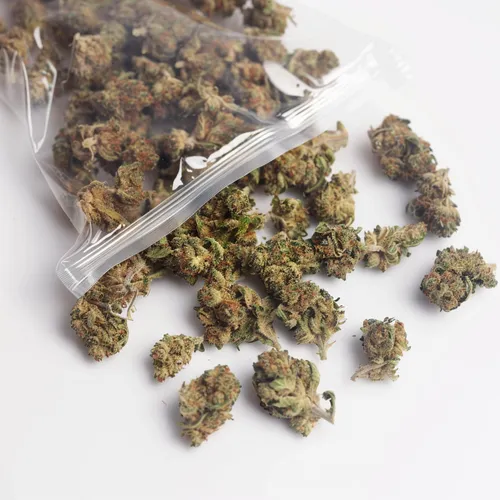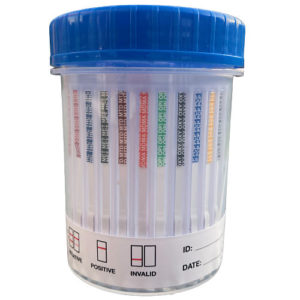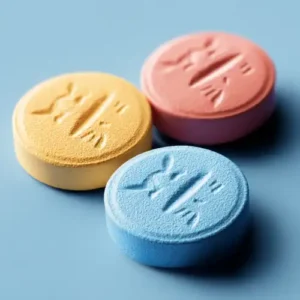There are a lot of myths and misconceptions surrounding cannabis. How well do you know cannabis?
True or False – Cannabis is natural, so it’s safe.
How about a nice cocktail of cyanide and deadly nightshade? No? How about poison ivy? Many people believe that because cannabis is natural, that makes it safe. They forget that there are a lot of natural substances, including those mentioned above that can be harmful. It’s true that cannabis can help you relax, but it can also cause you to feel paranoid and isolate yourself. It can also zap your motivation, which can put a damper on your hobbies and school work.
Cannabis use, especially in teenagers and young adults, has been linked to negative impacts on brain development. Studies show that regular cannabis consumption during these crucial years may impair memory, cognition, and IQ. The psychoactive compound THC in cannabis can also increase the risk of developing mental health issues like anxiety, depression, and even psychosis in some individuals, particularly those predisposed to such conditions.
True or False – Everyone smokes it!
Not so. A survey conducted in 2012 revealed that nearly 9 out of 10 kids under 15 had never smoked it. Even among high school kids, less than 25% admitted to using it, according to a 2013 study conducted by the National Institute for Drug Abuse.
True or False – Cannabis is good for you!
Sure, it feels good. Using it makes you feel relaxed and happy. It can also make you feel anxious and paranoid. Using cannabis as a teenager can permanently lower your IQ and it can also cause some very serious mental health issues.
Just like tobacco smoke, inhaling cannabis smoke can harm your lungs and respiratory system. Regular cannabis smokers may experience increased phlegm production, chronic bronchitis, and an increased risk of lung infections and respiratory complications.
True or False – Tobacco is worse than cannabis.
Smoke can damage your lungs, regardless of whether it comes from tobacco, cannabis or anything else. In addition, tobacco isn’t linked to paranoia and long term mental illness like cannabis has been.
How long can cannabis be detected in urine?
THC, the active compound in cannabis that urine drug tests look for, is fat-soluble. This means it is stored in the body’s fat cells, then released slowly into the bloodstream to be filtered by the kidneys. In occasional users, THC is detectable for as long as ten days. For regular or heavy users, THC builds up in the fat cells faster than it can be released and filtered. This means it can be detected for several weeks, and can take as long as three months to fully leave the body.
True or False – THC cannot be detected if you’ve only used cannabis once.
False. If you smoke enough to feel the effects, the THC will be detectable in the urine for at least a couple of days. Even if you don’t smoke it, but you’re around it enough to get what’s called a ‘contact high’, it is in your system and can be detected.
So now you understand how harmful cannabis can be. What can you do if you are concerned about a friend or family member that is using cannabis? First, talk to them. Explain to them that you are concerned about their use and how you feel about it. Direct them to local and online services that offer help and support for people that use cannabis. Visit these resources yourself, they often offer support for those affected by cannabis use.
The Legal Landscape of Cannabis
The legal status of cannabis varies greatly around the world. In some countries and states, both medical and recreational use of cannabis is legal and regulated, while in others, it remains completely illegal. There are ongoing debates about the potential benefits and risks of legalizing or decriminalizing cannabis, with perspectives from medical professionals, law enforcement, economists, and public health experts contributing to the discourse.
Proponents of legalization argue that it could provide economic benefits through taxation, reduce the burden on the criminal justice system, and allow for better regulation and quality control of cannabis products. Opponents, however, cite concerns about increased accessibility and potential misuse, particularly among youth, as well as the need for more research into the long-term effects of cannabis use.
Medicinal Uses of Cannabis
While the recreational use of cannabis remains controversial, there is growing interest and research into its potential medicinal applications. Cannabis and its compounds, particularly cannabidiol (CBD), have shown promise in treating a range of conditions, including chronic pain, epilepsy, multiple sclerosis, and nausea related to chemotherapy.
However, the scientific evidence on the therapeutic benefits and potential risks of medicinal cannabis is still emerging. Access to medical cannabis is also heavily regulated and varies widely across different regions, with some countries or states allowing its use for specific conditions under medical supervision, while others still prohibit it entirely.
Cannabis Through the Ages
Cannabis has a long and storied history, with evidence of its use dating back thousands of years across various cultures and civilizations. From ancient religious and spiritual rituals to its more recent association with counterculture movements, cannabis has played a significant role in shaping societal attitudes and perceptions.
While once stigmatized and demonized, attitudes towards cannabis have been gradually shifting in many parts of the world, fueled in part by its increasing representation and normalization in popular culture, music, art, and literature. However, the complexities surrounding its legal status, potential risks, and societal impacts continue to drive ongoing debates and discussions.
Tips for Parents and Caregivers
If you suspect or know that a teenager or young adult in your life is using cannabis, it’s important to approach the situation with empathy and open communication. Educate yourself on the potential risks and effects of cannabis use, and have an honest, non-judgmental conversation with them about your concerns.
Look for signs of changes in behavior, mood, or academic performance, which could indicate cannabis use. If necessary, seek professional help or support services to address any underlying issues or potential addiction. Remember, a compassionate and supportive approach can go a long way in helping your loved one make informed decisions about their well-being.
Cannabis Now Twice As Strong As A Decade Ago
A study looked at the strength of street cannabis in Europe over a period of eleven years. What concerned scientists was the increase in THC levels. In 2006 the levels of THC in cannabis were about 5%. The same drug over a decade later had THC levels of 17%!
The amount of THC in cannabis has been linked to psychosis by doctors. Levels of CBD in the plant help to reduce the negative impact of THC on health. However, the study found that while the THC in the newer strains of cannabis had risen dramatically, levels of CBD had not kept pace. This meant that users were more likely to fall victim to mental illness because of cannabis use.
Detecting Cannabis with an 18 Panel Urine Drug Test
The comprehensive 18 Panel Drug Test with Integrated Cup from Zoom Testing is a powerful tool for detecting not just cannabis but a wide range of drugs of abuse. In addition to THC, the psychoactive compound in cannabis, this cutting-edge test can identify the presence of stimulants like amphetamines, methamphetamine, and cocaine, as well as opioids such as heroin, fentanyl, and oxycodone. It also screens for club drugs like MDMA (ecstasy) and ketamine, depressants like barbiturates and benzodiazepines, and even nicotine.
With its temperature strip and adulteration checks, this reliable test ensures accurate results by confirming the integrity of the sample. As UK drug testing experts, Zoom Testing offers this innovative all-in-one solution for employers, healthcare providers, and individuals seeking a comprehensive and efficient way to detect a broad spectrum of substances. The integrated cup design streamlines the testing process, making it a convenient and practical choice for those committed to a drug-free environment.
Photo: “Cannabis” by Anthony Cunningham for Zoom Testing
Zoom Testing is a leading UK drug testing company and a supplier of Drug Test Kits.






